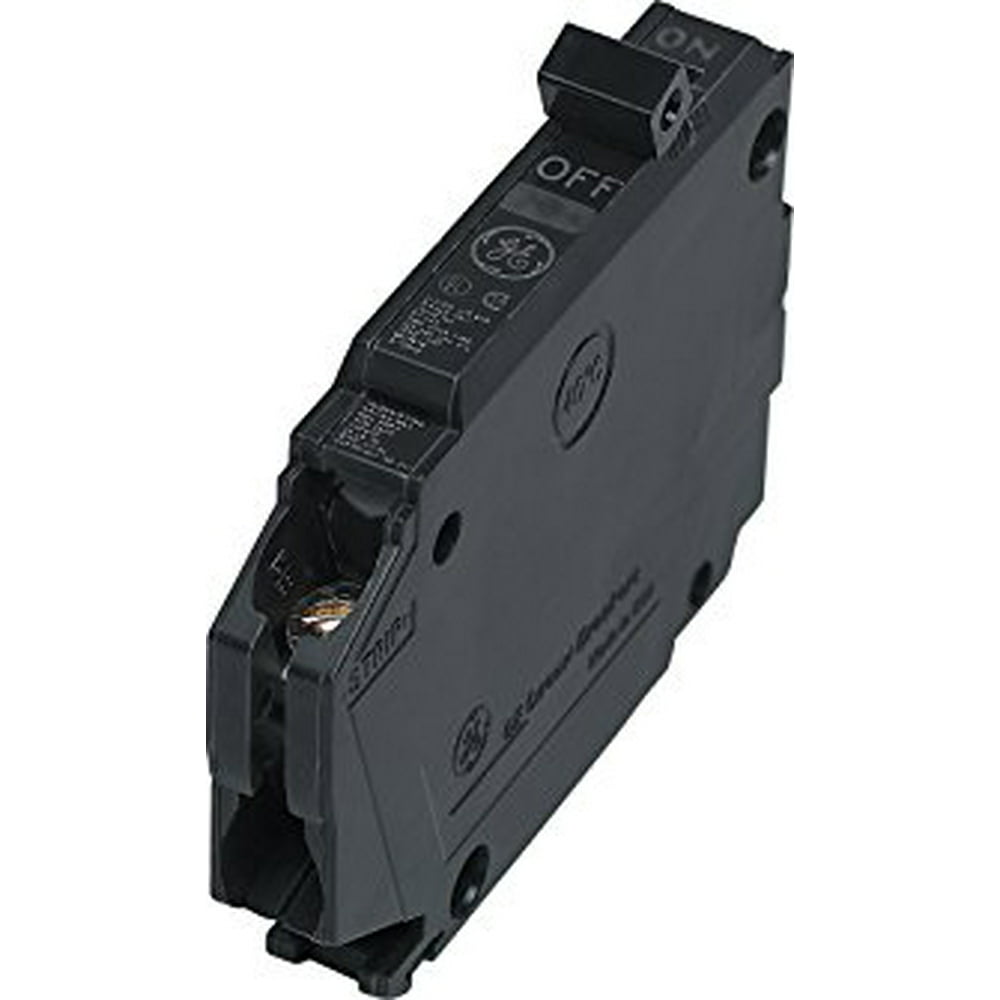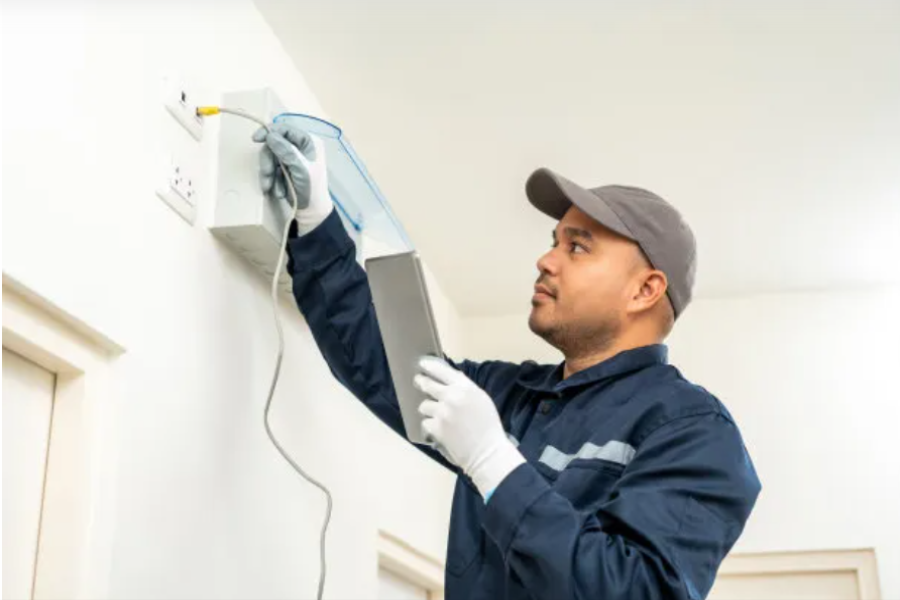Cool Tips About Is It OK To Replace A 15 Amp Breaker With 20

How To Replace A Circuit Breaker Quick And Simple StepbyStep
Thinking About Upping Your Breaker Game? Hold On a Sec!
1. Understanding Electrical Safety First
So, you're staring at that 15 amp breaker, maybe it keeps tripping, and you're thinking, "Aha! I'll just swap it out for a 20 amp breaker and be done with it!" Sounds like a plan, right? Well, before you go reaching for your screwdriver, let's pump the brakes a little. Electricity isn't exactly something you want to mess with without knowing the potential consequences. Think of it like baking a cake — you can't just throw in random ingredients and hope for the best!
The main reason why you can't blindly replace a 15 amp breaker with a 20 amp one boils down to the wiring. Your home's electrical system is designed with specific wire gauges to handle certain amperages. A 15 amp circuit uses thinner wire than a 20 amp circuit. So, what happens if you overload that thinner wire with more current than it's designed for?
Imagine your electrical wiring as a highway. A 15 amp circuit is like a two-lane road, perfectly fine for a certain amount of traffic. Now, you decide to send way more cars down that same road — a recipe for a traffic jam and, in this case, potentially a fire hazard. The wire heats up, the insulation melts, and boom — not a good situation. It's like trying to run a marathon in flip-flops; it's just not set up for it.
In essence, throwing in a larger breaker to stop the nuisance tripping doesn't solve the core issue. It only masks the underlying problem, pushing your wiring beyond its safe limits. Think of it as putting a bandage on a broken leg; it might look better for a little bit, but you're definitely not fixing the bone.

Can I Replace A 15 Amp Breaker With 20 Breaker? TONGOU
The Wire Gauge Dilemma
2. Why Wire Size Matters for Breaker Size
Let's dive a little deeper into the world of wire gauges. Each wire size is designed to handle a specific amount of current safely. For example, 14-gauge wire is typically used for 15 amp circuits, while 12-gauge wire is used for 20 amp circuits. It's a pretty simple, yet crucial, standard to adhere to. Think of it as shoe sizes — you wouldn't try to squeeze your size 12 foot into a size 9 shoe, would you?
If you replace that 15 amp breaker with a 20 amp one, you're essentially telling that 14-gauge wire, "Hey, I know you're only supposed to handle 15 amps, but I need you to handle 20 now!" That wire will overheat because it's being asked to do something it's not designed to do. This overheating can lead to damaged insulation, arcing, and, in the worst-case scenario, a fire.
It's important to note that you might not immediately see the consequences of this mistake. The wire could be slowly deteriorating over time, with the risk increasing with each overload. It's like slowly bending a paperclip back and forth — eventually, it's going to snap. Don't let your electrical system be the paperclip in this scenario.
The National Electrical Code (NEC) sets these standards for a reason — to keep you and your home safe. Ignoring these guidelines is like ignoring the instructions on a medicine bottle; you might get away with it, but it's a gamble you really don't want to take.

15 Amp Vs 20
Finding the Real Culprit
3. Troubleshooting the Issue, Not Just the Symptom
Okay, so replacing the breaker isn't the answer. But what is the answer? The fact that your 15 amp breaker is tripping tells you that something is wrong. It's like a warning light on your car's dashboard — it's trying to tell you something important. The key is figuring out why it's tripping.
One of the most common reasons for a breaker to trip is an overloaded circuit. This means you're drawing more power than the circuit is designed to handle. Think about plugging in a space heater, a hair dryer, and a microwave all on the same circuit. That's a lot of juice being pulled at once!
Another possibility is a short circuit. This happens when a "hot" wire (usually black or red) comes into contact with a neutral wire (usually white) or a ground wire. This creates a sudden and massive surge of current, which trips the breaker instantly. Short circuits are often caused by damaged wiring or faulty appliances.
A third possibility is a ground fault. This occurs when current leaks from a hot wire to a grounded surface, such as a metal appliance casing or a metal junction box. Ground faults are also dangerous and can cause shocks. GFCI (Ground Fault Circuit Interrupter) outlets are designed to protect against these types of faults.
Investigating the issue and fixing the underlying cause, instead of simply upsizing the breaker, ensures you address the true problem and prevent potential hazards.

Can I Replace A 15 Amp Breaker With 20 Amp? VOZWEI
Call in the Pros
4. Knowing When to Defer to a Qualified Electrician
Let's be honest, electrical work isn't for everyone. If you're not comfortable working with electricity or you're unsure about what you're doing, it's always best to call a qualified electrician. Think of it like performing surgery on yourself — probably not a good idea!
A licensed electrician has the training, experience, and tools to diagnose and fix electrical problems safely and effectively. They can properly assess your wiring, identify potential hazards, and make the necessary repairs to ensure your electrical system is up to code.
Trying to save a few bucks by doing it yourself can end up costing you a lot more in the long run, especially if you make a mistake that leads to a fire or electrical shock. The price of hiring an electrician is a small price to pay for peace of mind and the safety of your home and family.
They can also tell you if it's okay to upgrade your wiring and what size breaker you can safely use. Remember, it's always better to be safe than sorry when it comes to electricity.

How To Replace A Circuit Breaker All You Need Know YouTube
The Smart (and Safe) Alternative
5. Practical Steps for Addressing Circuit Overloads
So, you can't just swap out that breaker. What can you do? Here are some safe and practical alternatives to consider:
First, try redistributing your appliances. If you're constantly tripping the breaker, it's likely because you're overloading the circuit. Try plugging some of your appliances into outlets on different circuits. You might be surprised at how much of a difference this can make.
Second, consider using energy-efficient appliances. Older appliances tend to draw more power than newer, energy-efficient models. Upgrading to energy-efficient appliances can reduce the load on your circuits and help prevent overloads. Think of it as upgrading your car to a more fuel-efficient model — it'll save you money in the long run.
Third, have an electrician evaluate your wiring. If you consistently have problems with a particular circuit, it's possible that the wiring is old or damaged. An electrician can inspect your wiring and recommend repairs or upgrades to improve its safety and performance.
Fourth, think about adding new circuits. If you find that you're constantly overloading your existing circuits, it might be time to add some new ones. An electrician can install new circuits to provide you with more power and reduce the risk of overloads. This is like adding extra lanes to that highway — it'll ease the congestion and allow more traffic to flow smoothly.

Can I Add A 60 Amp Breaker To This Panel? R/electrical
FAQ
6. Your Breaker Burning Questions, Answered
Q: My 15 amp breaker keeps tripping even when I don't think I'm using much power. What's going on?
A: It could be a number of things! It's possible there's a hidden short circuit or ground fault somewhere on the circuit. It could also be that an appliance is drawing more power than you realize. Or, the breaker itself might be faulty and need replacing (with another 15 amp breaker, of course!). An electrician can help you diagnose the problem.
Q: Can I use a "slow blow" fuse in place of my breaker?
A: While slow blow fuses exist, it's generally not recommended to replace a breaker with a fuse. Breakers are designed to be resettable and offer better protection against overcurrents. Sticking with the appropriately sized breaker is the safest bet.
Q: I'm adding a new appliance that requires more power. Can I just upgrade the breaker and wiring myself?
A: Adding new circuits or significantly upgrading existing ones is best left to a qualified electrician. This ensures the job is done safely, correctly, and in compliance with local codes. Don't risk it — call a professional!